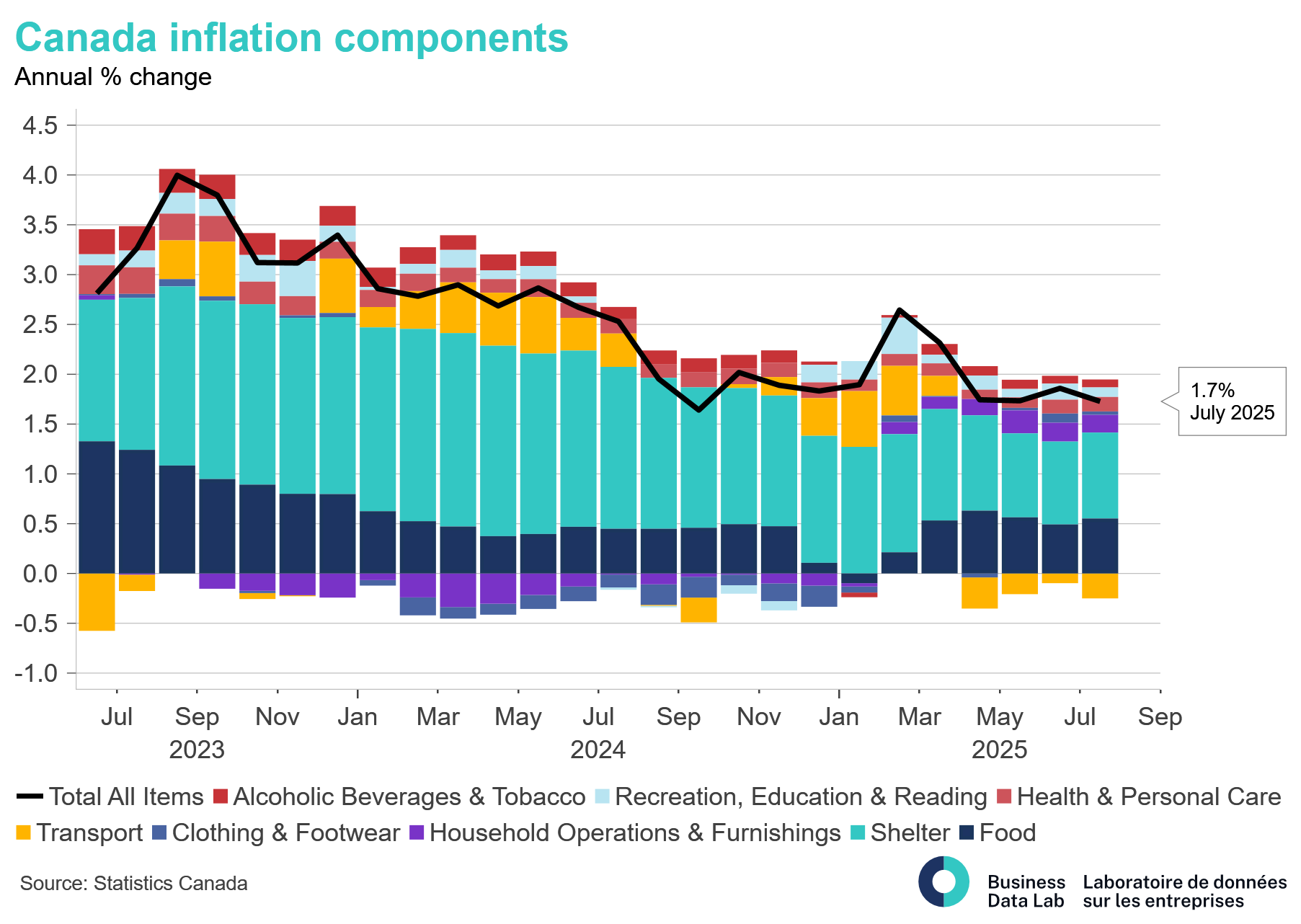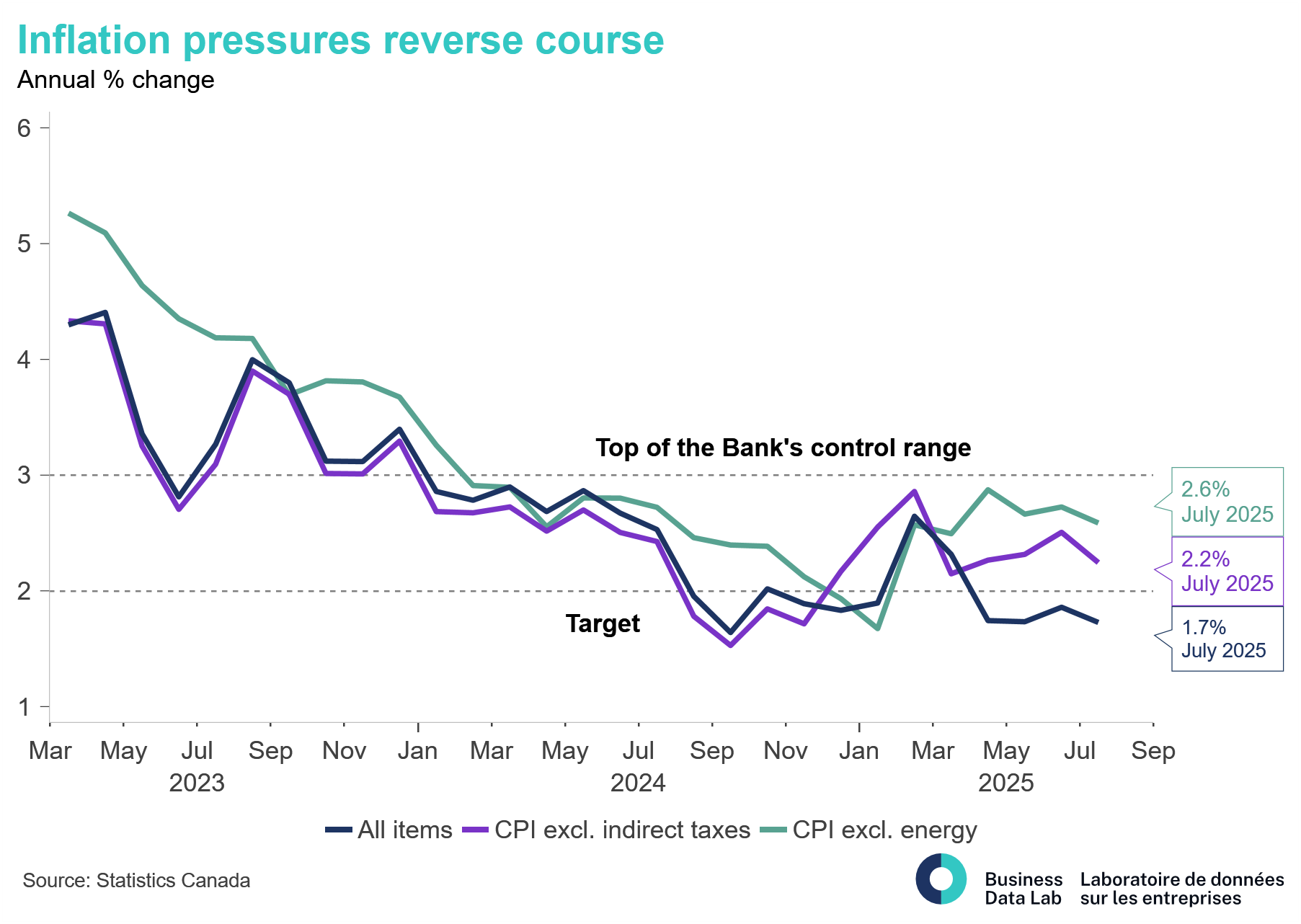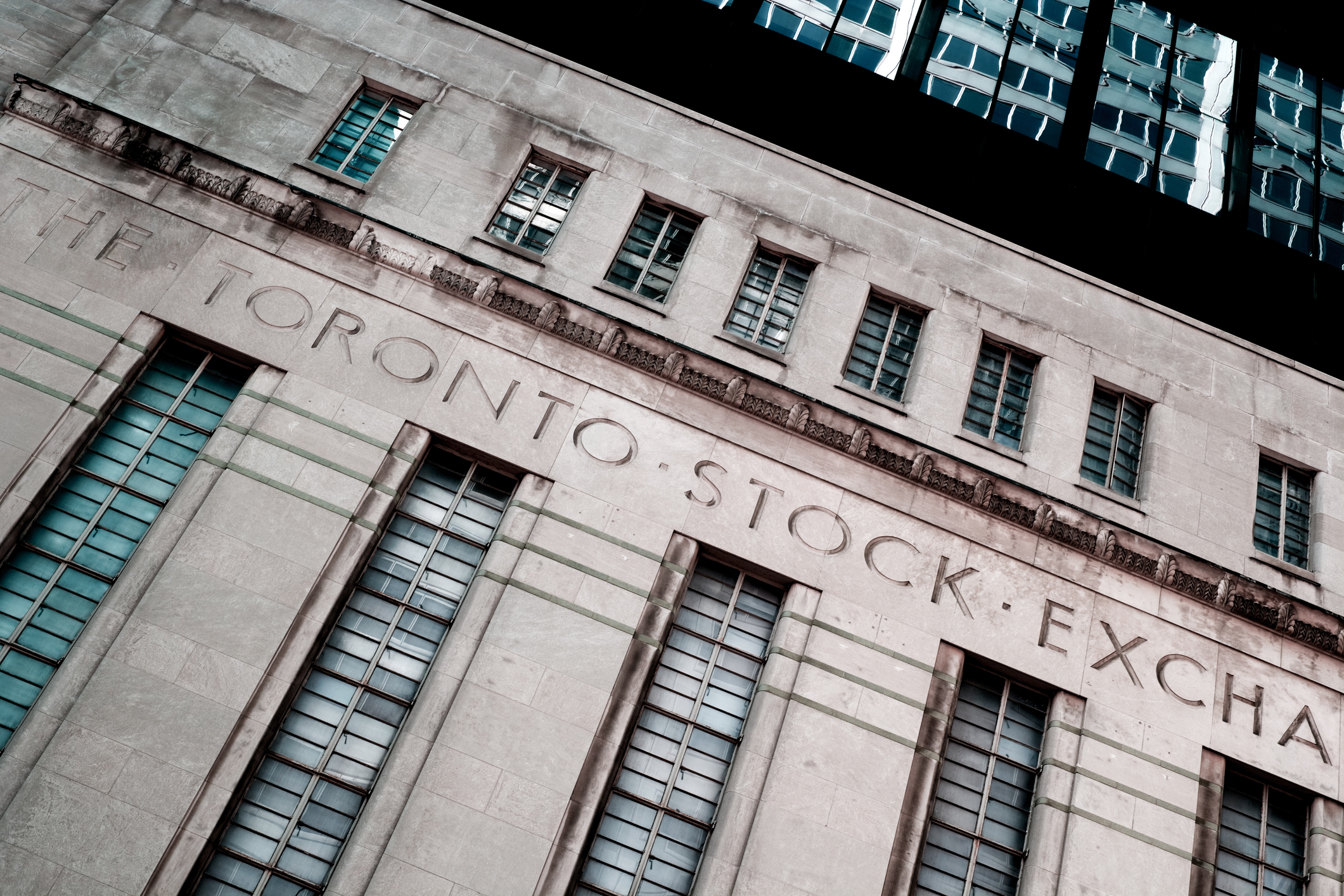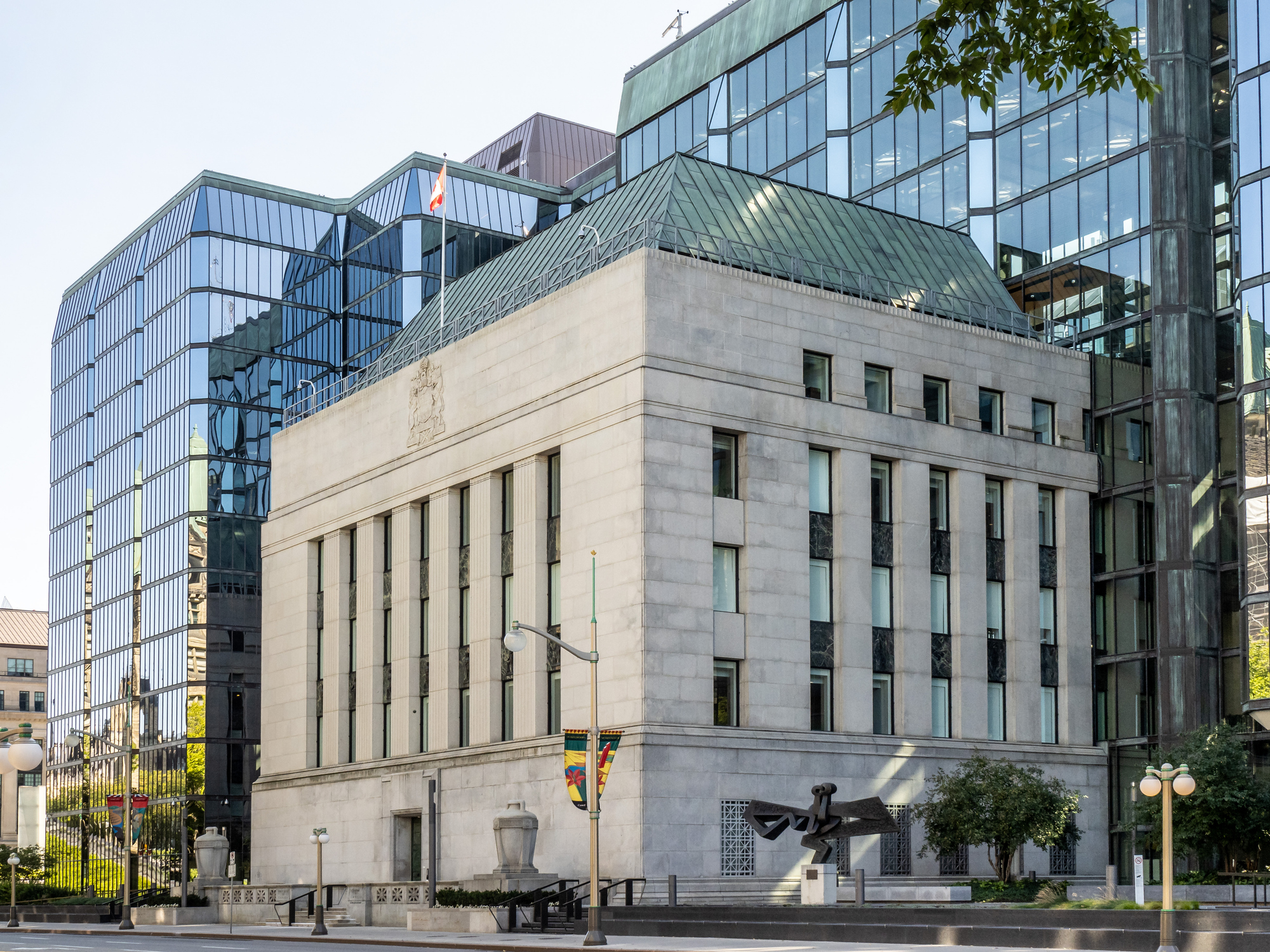Blog /
July 2025 CPI: Inflation cools off in the summer heat.
Canada’s inflation decelerated from 1.9% in June to 1.7% in July, on lower gasoline prices. Overall, recent price acceleration took a pause and there are some encouraging signs of price stability in light of the trade war.

“This is a positive inflation report on many fronts as price pressures ease for goods and services. Sticky core measures in July may put progress at risk, but if this momentum continues, we could see the Bank of Canada move rates lower in September. Time will tell if tariffs are feeding through consumer prices, but there are some upward trends on food and durable goods that could tilt the scales as the effects of tariffs are realized.”
Summary
- Canada’s inflation decelerated from 1.9% in June to 1.7% in July, on lower gasoline prices, and slightly lower than economist estimates of 1.8%. Overall, recent price acceleration took a pause and there are some encouraging signs of price stability in light of the trade war. However, an increase in shelter, groceries, and durable goods will be something to watch as emerging price pressures.
- Core inflation measures solidified a fourth month at the top of the Bank of Canada’s 1-3% target range. Though, momentum on a 3-month moving average dropped to 2.4%, following months of readings around 3%.
CPI Breakdown
- Gasoline prices were lower in July by 16% on an annual basis, and declined 0.7% on a monthly basis. Though prices have been stable over the past few months, the carbon tax removal continues to impact prices. Inflation (excluding indirect taxes) moderated to 2.2% in July.
- Shelter prices grew for the first time since early 2024, as rent and natural gas prices rose in July. With summer being a time when rents renew, prices could be adjusting to the market. Declining mortgage interest costs limited the impact on overall inflation.
- Goods inflation moderated in July, growing 0.3% annually. Goods product prices have been relatively muted, but durable goods has seen consecutive price growth, which could indicate retaliatory tariffs are feeding through to consumers.
- Services inflation continues to be running hot, though decelerated to 2.8% in July. We expect services inflation to take more time to converge to 2%, as slack builds in the labour market.
Provincial Trends
- Inflation decelerated in six provinces in July. PEI and Newfoundland and Labrador saw inflation rise by 0.4% to 1.2% and 1.6% respectively. Nova Scotia inflation held flat at 1.6%.
Implications
- Headline inflation saw some good progress when you remove the noise. It paused some underlying price pressures that were building, with the net share of the CPI basket growing above 2% now negative. Canada’s retaliatory tariffs are likely showing up in the data as goods inflation rebounds.
- The slightly positive inflation surprise swayed market participants to increase odds for a Bank of Canada interest rate cut in September, with pricing showing expectations for an October cut. If this trend continues, we can expect the Bank of Canada to cut interest rates at its September meeting, in line with its weak economic outlook presented in their latest MPR.



Sources: Statistics Canada; Canadian Chamber of Commerce Business Data Lab















